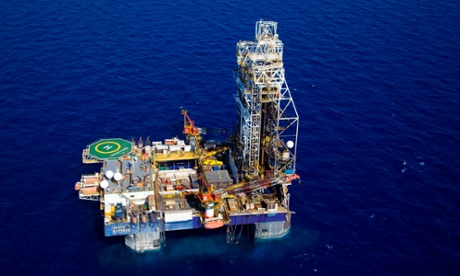Greece, Cyprus and Israel to explain Med pipeline vision to EU
NICOSIA
NICOSIA Dec 2 (Reuters) - Energy ministers of Greece, Cyprus and Israel will hold talks with the EU next week to try to advance a plan for a pipeline linking newly-discovered gas riches in the eastern Mediterranean to Europe, Cyprus's energy minister said on Tuesday.
Energy Minister Yiorgos Lakkotrypis told Reuters the three countries would put their case forward for a technical and feasibility study on building a pipeline through the Mediterranean westwards to Europe, tapping hydrocarbons discovered in the Levantine Basin.
They had asked for a meeting with Maros Sevcovic, the European Commissioner for energy union, Lakkotrypis said.
"The three ministers (of Greece, Israel and Cyprus) have co-signed a letter and asked for a meeting on Dec. 8, on the sidelines of the (energy) Council happening on the 9th," Lakkotrypis told Reuters.
Greece's Energy Minister Yannis Maniatis also said there would be announcements next week in Brussels.
"The project is absolutely feasible and viable," Maniatis said in a speech in Athens.
An EU official confirmed a meeting had been requested.
The EU has drawn up a list of priority projects considered to play a role in completing the EU energy union and they include infrastructure to ship eastern Mediterranean gas.
Israel has discovered huge offshore deposits of natural gas, while Cyprus, which lies to its west, has also reported one discovery. U.S. Noble Energy has a concession over one Cypriot offshore field as well as discoveries in Israel, and Italy's ENI now drilling in another area for gas.
Last week, Cyprus and Egypt discussed Cypriot reserves, including the possibility of piping them to Egypt.
This year's conflict between Russia and Ukraine, the transit route for roughly half the energy Russia supplies to the EU, has focused EU debate on energy security and diversifying supplies.
It has also driven Russia's quest for alternative shipment routes and it had planned a giant pipeline named South Stream to pump gas into southeastern Europe, bypassing Ukraine. The Commission, however, said the pipeline did not meet EU regulatory rules and on Monday, Russia announced it was scrapping the plan. (Reporting By Michele Kambas in Nicosia, Lefteris Papadimas in Athens andBarbara Lewis and Julia Fioretti in Brussels; editing by Susan Thomas)
Link to source: http://www.reuters.com/article/2014/12/02/eastmed-natgas-europe-idUSL6N0TM47J20141202
